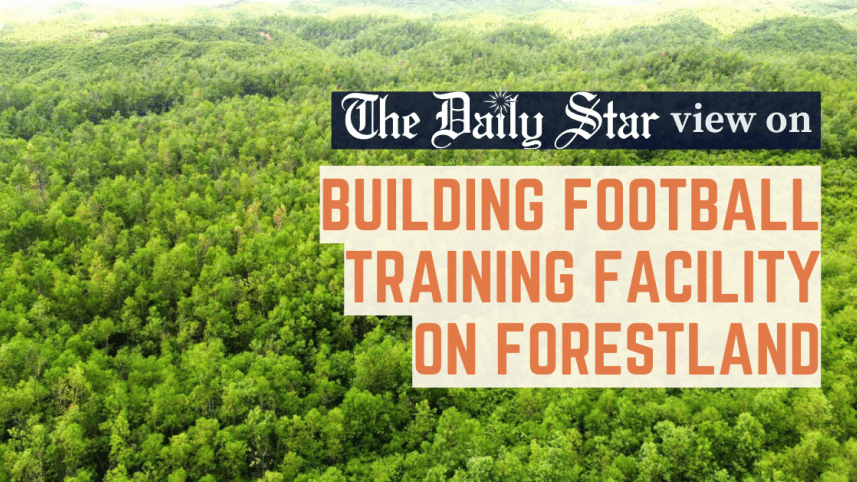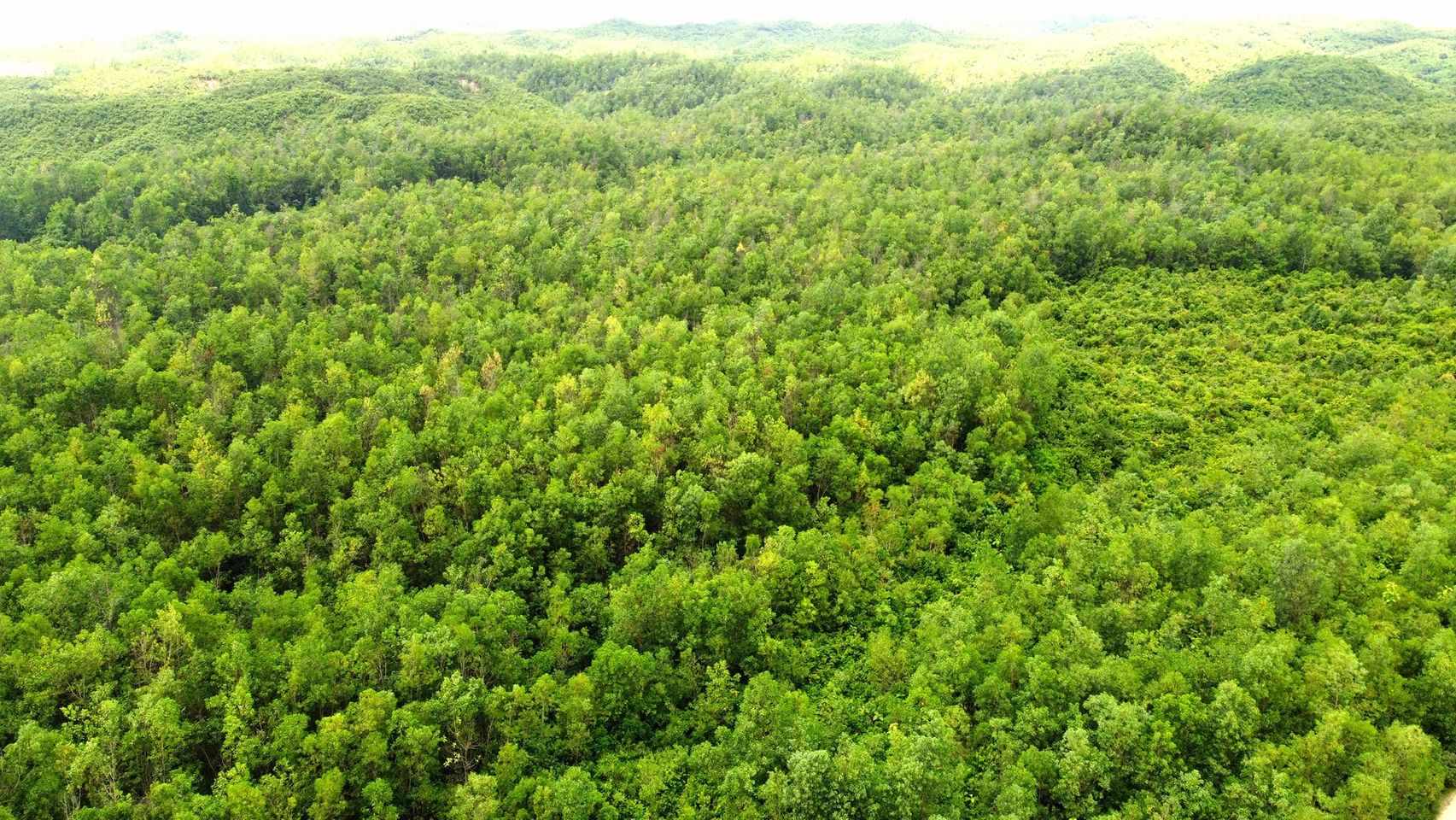Save Khuniya Palong reserved forest

We're alarmed to know that the government is allowing Bangladesh Football Federation (BFF) to build a residential training facility in a reserved forest – Jungle Khuniya Palong – in Ramu, Cox's Bazar. According to our report, 20 acres of land on which the centre will be built were already handed over to BFF, after quietly de-reserving it in early June. Justifying the decision, the minister of environment, forest and climate change has claimed that "there was no alternative to it", and that "we'll make sure the harm to forestland is kept at a minimum level." We find both the justification and the assurance quite unconvincing.
While the practice of ravaging forests is nothing new in Bangladesh, this marks a new low in government-sanctioned deforestation with football thrown into the mix. Forests are critical to our existence. Football is anything but, especially in a country with dangerously low forest coverage. "Football for forest" is thus not only a bad bargain, it also flies in the face of common sense, established conservation practices, our constitution and international commitments, a High Court order… the list goes on. According to an estimate, about 30,000 trees will have to be felled for the planned construction. We cannot help but ask: What's so important about a football facility that a forest will have to be scarred for it? Why are forests, reserved ones no less, always such easy prey?
One may recall a similar incident last year when the public administration ministry sought to build a civil service academy on 700 acres of protected forestland in Cox's Bazar. The land allotment order was met with opposition from activists and even a parliamentary standing committee, and it was eventually stayed for three months by High Court. The court, previously, had directed the government not to hand over any more forestland of Cox's Bazar to any individual or organisation. The latest move shows how little effect that ruling has had on relevant authorities, who continue to defy the highest court of the country.
This is a disturbing development in itself, but more so for forests in Cox's Bazar which are particularly at risk, having suffered largescale clearance after the arrival of Rohingya refugees. The problem was compounded by the continuation of encroachment, de-reservation, deforestation and leasing out of land – a cocktail of crimes against nature in which both locals and officials are equally complicit. We have nothing against building training facilities for anyone, but it must be done responsibly, on plain land. When the government itself breaks law, it sets a very bad precedent. We, therefore, urge the higher authorities to quickly intervene to save Khuniya Palong forest. It should re-reserve the land allotted and take the project elsewhere.



 For all latest news, follow The Daily Star's Google News channel.
For all latest news, follow The Daily Star's Google News channel. 

Comments